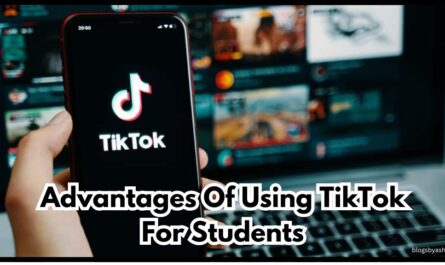5 Disadvantages Of Social Media For Students. Social media platforms such as Facebook, Instagram, Twitter, and Snapchat have become essential components of modern life for those born during this era of technology. While such platforms provide many advantages – connecting with friends, sharing experiences, sharing stories, and accessing data – they also present potential risks that could undermine students’ academic performance, mental well-being, and overall well-being. 5 Disadvantages Of Social Media For Students.
Time. Management Concerns
College students using social networks often struggle with time management. Their addiction can lead to excessive usage, which wastes precious study or productive time that could otherwise be spent reading newsfeeds or watching viral videos – and may prevent them from meeting academic obligations.
Students must balance social media use with academic obligations when faced with exams or deadlines, yet staying current on social media news could disrupt studying sessions, leading to decreased time management and productivity.
Social Media Platforms as Distraction from Studies

One drawback of social media platforms for students is how easily they can distract them from their research. With laptops and smartphones providing easy access to these sites, students often become distracted from studying time by notifications and updates popping up from time to time during key studying periods – this constant disruption of concentration to check messages, post updates, or browse timelines can reduce academic performance drastically.
Recent studies have linked frequent social network use with shorter attention spans, making it challenging for students to concentrate for extended periods on academic work. Social networks’ constant stream of nonstop slack-form content and notifications that pop up suddenly trains the brain for instant gratification rather than for critical thought – thus diminishing cognitive talent essential to studying and thinking critically.
Cyberbullying and Online Harassment
Platforms for social networking provide fertile grounds for cyberbullying, online harassment, and other forms of bullying to flourish – creating significant risks to students’ mental and emotional health. The anonymity provided by the internet encourages individuals to engage in dangerous actions without fear of consequences – making it much simpler for bullies to strike without being noticed by authorities.
Students using social networks such as Facebook are constantly exposed to cyberbullying – whether through hurtful remarks, malicious rumors, or offensive material posted by classmates – with devastating psychological repercussions such as depression, anxiety, and suicidal thoughts among their peers.
Impact on Mental Health

Social media usage has been linked with various mental health problems among students, such as increased anxiety, stress, and depression. The Social media platforms’ comparison system makes students judge themselves by likes or shares, creating feelings of inadequacy or lower self-esteem in users.
Social media feeds often present idealized images and lifestyles that create unrealistic expectations for students, leading them to present an illusion of perfection, which increases stress and anxiety levels. Comparing oneself to these idealized lifestyles on social media may exacerbate mental health problems while producing negative self-image issues.
Privacy Concerns
Social media platforms present many students with privacy risks when sharing sensitive and personal data without understanding its ramifications. Social networks enable a culture of sharing that puts users at risk of identity fraud, scams, and various types of cyber exploitation.
Media platforms also need more privacy safeguards, and their terms of service can frequently change, creating uncertainty around user security and privacy. Students could become vulnerable to threats such as identity theft and harassment by sharing too much personal data online – placing their security and wellbeing at risk.
Conclusion
While social media provides students with many advantages, such as connectivity, sharing of information, and socialization, its downsides can have detrimental effects on academic achievement, mental wellbeing, and overall health. Distractions from studies, time management problems during studies, cyberbullying incidents, health concerns, and privacy risks are only some of the many challenges they can encounter while exploring digital space.
Students must use social media responsibly, setting limits and prioritizing personal and academic health when responding to share/like notifications. By being aware of their online activity and proactively protecting their privacy and mental well-being, students can limit the negative impacts of social media use while harnessing its potential to foster growth and development.
Q&A
How can students organize their time efficaciously when together on the internet?
- Prioritize academic commitments and set time limits to use social media.
- Use productivity tools and applications to reduce distractions and monitor the time you spend on your screen.
What are the signs that the use of social media can negatively affect students’ mental health?
- More anxiety, depression, or mood fluctuations.
- Problems with focusing on academic assignments and a decrease in motivation.
Can students safeguard their privacy when using social media sites?
- Check and adjust your privacy settings to limit public view of personal data.
- Do not share sensitive information like address numbers, phone numbers, or financial information online.
What can students do when they encounter online bullying or harassment of cyberbullying?
- Contact your trusted relative, counselor, or family member to seek help.
- Report any abusive behavior to appropriate authorities or moderators of the platform.
Does it have any advantages in taking a break from Facebook or other social networks?
- A break to unwind from your social networks can raise mental health, increase productivity, and encourage real-world connections.




